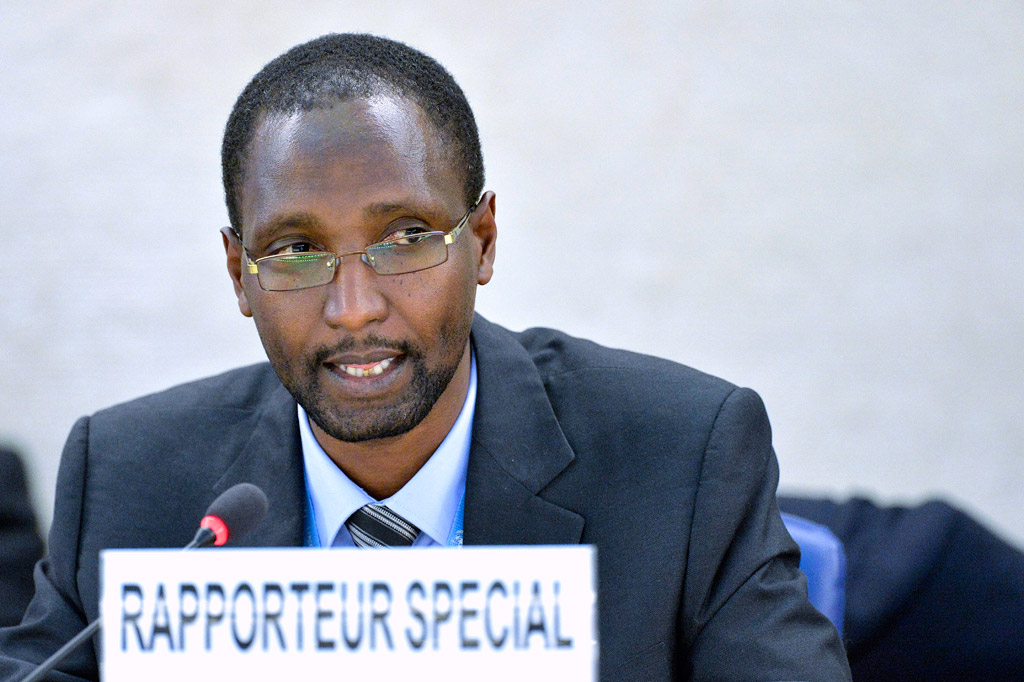Human Rights Council Discusses Racism, Racial Discrimination, Xenophobia and Related Forms of Intolerance
Geneva, Switzerland, June 29th The Human Rights Council held earlier this week, an interactive dialogue with Mr. Mutuma Ruteere, the Special Rapporteur on racism, racial discrimination, xenophobia and related forms of intolerance, who presented three reports to the Council, followed by a general debate on racism and racial discrimination. In the presentation of the reports, Mr. […]

Geneva, Switzerland, June 29th The Human Rights Council held earlier this week, an interactive dialogue with Mr. Mutuma Ruteere, the Special Rapporteur on racism, racial discrimination, xenophobia and related forms of intolerance, who presented three reports to the Council, followed by a general debate on racism and racial discrimination.
In the presentation of the reports, Mr. Ruteere said that the first of his thematic documents focused on xenophobia, its trends and manifestations, especially in the context of the current migration crisis. He reminded States that strategies for countering xenophobic discrimination must be context-specific and carefully adapted to domestic realities, in which the role of local actors is paramount in designing and implementing tailored, local administrative and other measures to overcome local barriers to integration and peaceful cohabitation. When referring to his second report, on combatting the glorification of Nazism and neo-Nazism, Mr. Ruteere mentioned the violence perpetrated against Roma, Muslims, Jews and other minorities and vulnerable groups, also, he expressed concerns about cyber-racism and hate propaganda through social media platforms, as well as about the proliferation of extremist groups in sports. The third report was on his country visit to Greece.
Following the reports’ presentation, came the interactive dialogue, where delegations expressed concern that many of the issues raised in the report showed no signs of improvement and noted the continued threat to human rights and democracy of extremist political parties and movements, whose influence had increased in several areas of the world, particularly in Europe, where extremist parties occupied seats in national and regional parliaments. Speakers stressed the need for strong government response to racism and hate speech, including against refugees and migrants, and called for comprehensive strategies that would incorporate legal, educational and capacity building measures. Speakers also addressed the crucial role that civil society could play in tackling xenophobia at the community level and said that their initiatives should be supported and not suppressed by state authorities.
He also said that in the current era of increased mobility, widespread forms of overt physical violence, hate speech, and discrimination were rooted in xenophobia. He recommended that governments and stakeholders give due attention to a set of key elements in designing and implementing strategies with improved effectiveness. These included a local diagnosis of the situation, implementing preventive actions, promoting social solidarity, identifying the appropriate scale of intervention, the complementarity of strategies, and review and assessment.
The Special Rapporteur stressed the importance of cooperation between States, civil society organizations and technology actors for addressing online manifestations of racism. He also underlined the role of civil society organizations working with migrants at the local level in supporting access to justice for victims of xenophobic discrimination or xenophobic violence. He then said that States had the obligation to prohibit the proliferation of racism in consistence with their human rights obligations. Turning to the intersection with gender issues, he said that many women migrants were subjected to sexual violence. Recognizing the intersectionality between gender and race was crucial to fully address the issue in all its dimensions. Next year, his report will be about counterterrorism and the problem of xenophobia.
The International Institute on Race, Equality and Human Rights welcomes the reports of the Special Rapporteur on racism, racial discrimination, xenophobia and related forms of intolerance, especially the mention of the intersectionality between gender and race. We call on State Members to follow up on the commitments in the Durban Declaration and Programme of Action and prioritize the fight against racism, racial discrimination, xenophobia and related forms of intolerance.
Full report can be found in here.
For more information on the Human Rights Council, please contact our Legal Adviser in Geneva, Laia Evia, at Evia@oldrace.wp

